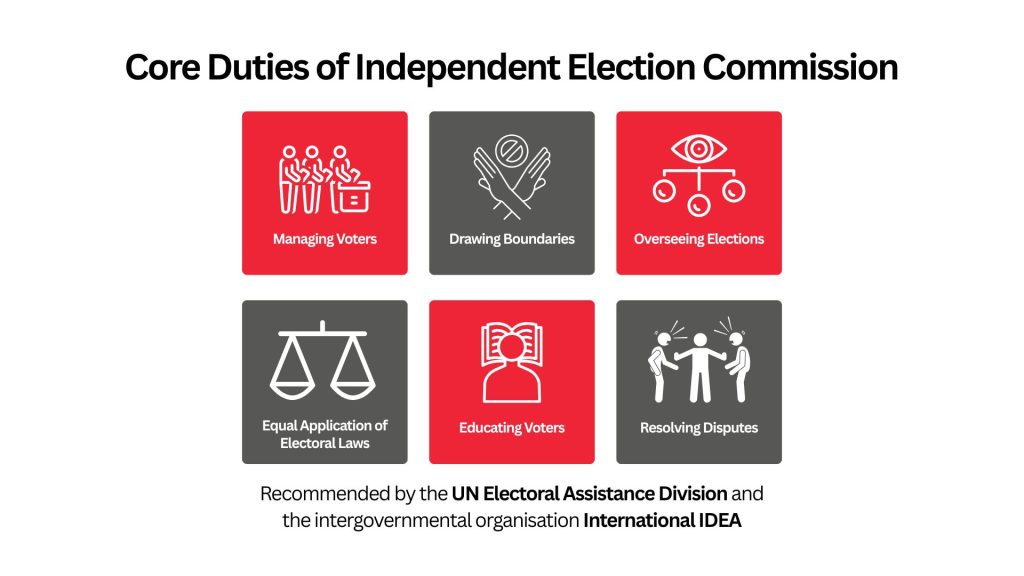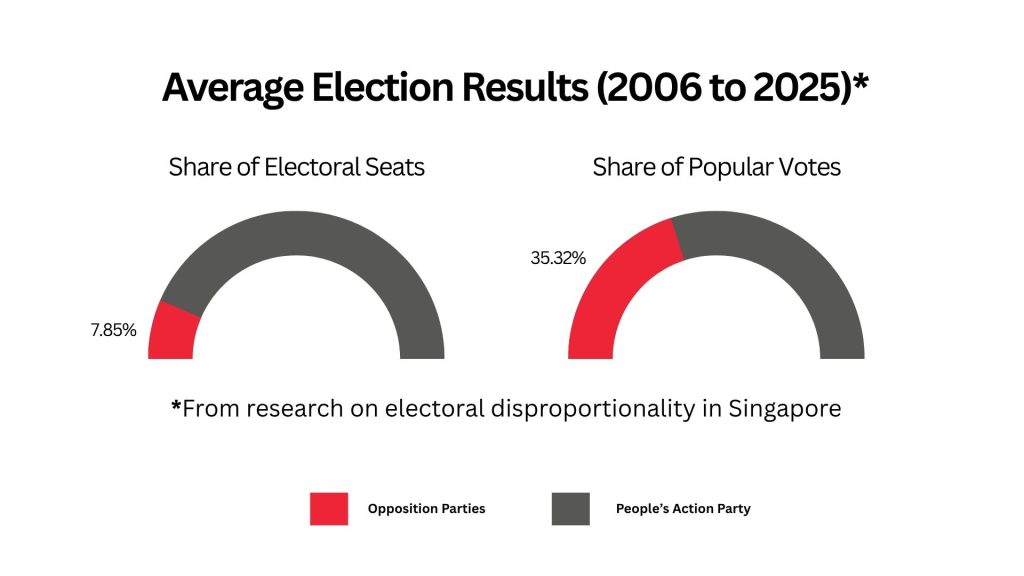For the past 60 years, Singapore’s elections have consistently returned the People’s Action Party (PAP) with a dominant parliamentary majority.
The electoral system that has provided for such a result has been repeatedly called out by academics, analysts, civil society groups and political parties as being fundamentally unrepresentative and unfairly skewed towards the PAP. This was once again echoed during the 2025 general election.
The Elections Department (ELD), tasked with conducting elections in Singapore, comprises civil servants among its management team and works under the Prime Minister’s Office.

A key demand throughout has been the establishment of an independent election commission. An independent election commission is also widely recognised as an international best practice recommended by the UN Electoral Assistance Division and the intergovernmental organisation International IDEA.
Key recommendations by these organisations include non-partisan experts as well as incumbent and opposition parties serving fixed terms sitting on the commission.

Its core duties should include managing voter registration, drawing boundaries, overseeing elections, ensuring equal application of electoral laws, educating voters and resolving disputes.
To ensure the election commission remains independent, robust checks and balances – such as legislative oversight, transparency in decision-making, and safeguards against arbitrary removal or budgetary interference – are essential to uphold both independence and accountability of the commissions.
For Singapore, this represents a long-overdue but essential first step toward genuine electoral reform.
The quality of Singapore’s electoral integrity in most international indices is weak at best. Having an independent election commission will strengthen several key concerns in Singapore’s elections.
Firstly, the fairness of election boundaries. Shortly before each election, entire electoral constituencies are dissolved, merged or reshaped to dilute opposition support while consolidating the ruling PAP’s advantage. Currently, these boundary changes are made without publicly available criteria, consistent timelines, meaningful public consultation or independent checks.
Also, by involving all political parties as equal stakeholders, boundary reviews would gain legitimacy and fairness, ensuring electoral districts reflect the true communities they represent.

Secondly, under this current system, despite gaining an average of 35.32% of the vote share from 2006 to 2025 (the last 4 general elections), opposition parties collectively failed to secure more than 7.85% of the total elected parliamentary seats.
Similarly, the Group Representation Constituency (GRC) system, initially introduced to ensure minority representation, gives the ruling party added advantage when it comes to redrawing the boundaries. Alternative models that protect minority representation while enabling equitable opportunities for all parties to compete and gain parliamentary seats need to be considered.
Thirdly, the commission’s role would also extend to overseeing the election campaign environment as a neutral referee. It would ensure that rules like Cooling-Off Days are applied fairly to all parties, and that state media coverage does not unduly favour the incumbent.
It would also monitor the use of state resources to prevent undue advantage by the incumbent and safeguard a level playing field. In this way, the commission would not only administer elections but also uphold democratic integrity throughout the entire electoral process.
Ultimately, elections in Singapore cannot be considered free and fair as long as structural conditions overwhelmingly favour the incumbent. Since the PAP – the main beneficiary of the current system – shows little political will for reform, the drive for change must come from the ground up.
This requires sustained public pressure as well as legal challenges, demanding a more open and representative electoral process. Central to these calls is the establishment of an independent election commission
Only with broader public engagement and a stronger opposition presence in Parliament can genuine, meaningful reform take root.